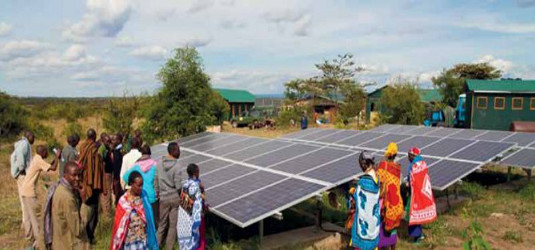Leaders of the free world, look away now: the World Bank has this week published a report that appears to show how a number of western nations have taken their eye of the ball when it comes to delivering supportive policies for clean energy adoption – with developing countries taking up the mantle instead.
The World Bank’s RISE (Regulatory Indicators for Sustainable Energy) scorecard has assessed the energy access, energy efficiency and renewable energy policies of 111 countries and found that it is developing nations that are increasingly taking the lead.
Mexico, China, Turkey, India, Vietnam, Brazil and South Africa are singled out for praise in the report; the World Bank effusive at their collective efforts to support a transition to more sustainable forms of energy via the introduction of robust policies.
However, beyond these nations there is vast room for improvement, the RISE report said, particularly in sub-Saharan Africa where 600 million people still live without electricity. The RISE analysis revealed that the region remains the least electrified in the world, with 40% of countries in sub-Saharan Africa having taken “barely any” action on introducing policy measures required to accelerate access to energy.
Kenya, Tanzania and Uganda buck this trend, the World Bank says, but compared to Asia – where only 10% of countries lack a clear framework – there is still much work to be done in sub-Saharan Africa on this front.
Of the top 10 “high impact” countries for renewable energy and energy efficiency, ie, those that have the most capacity of clean energy installed, there is a clear correlation with relatively robust policy frameworks in place. However, RISE found that of the top 10 high impact countries for access, ie, those that could most immediately benefit from additional renewable energy, there is still much progress to be made in terms of strong policy support.
Popular content
Solar’s tumbling costs were cited as a great opportunity for developing countries to bring electricity to residents that live beyond the reach of utilities, but the RISE report found that a great deal of countries had not created a regulatory environment “favorable to accelerate the diffusion of solar home systems”.
The challenge, RISE said, is no longer a case of working out how to build renewable energy power plants, but rather now to ensure access to widely available and affordable technology is granted to the world’s poorest.
“The world is in a race to secure a clean energy transition – one that will deliver energy services for everyone, create jobs, ensure healthcare and education, and allow economies to grow,” said Rachel Kyte, for Sustainable Energy for All (for whom RISE produced the report) and representative to the UN Secretary-General on Sustainable Energy for All. “Increased use of renewable energy is a key element in that transition.
“RISE offers policymakers and investors the most detailed country-level insight yet into how we can level the playing field for renewable energy worldwide. Smart policy can accelerate this transition,” Kyte concluded.
This content is protected by copyright and may not be reused. If you want to cooperate with us and would like to reuse some of our content, please contact: editors@pv-magazine.com.


By submitting this form you agree to pv magazine using your data for the purposes of publishing your comment.
Your personal data will only be disclosed or otherwise transmitted to third parties for the purposes of spam filtering or if this is necessary for technical maintenance of the website. Any other transfer to third parties will not take place unless this is justified on the basis of applicable data protection regulations or if pv magazine is legally obliged to do so.
You may revoke this consent at any time with effect for the future, in which case your personal data will be deleted immediately. Otherwise, your data will be deleted if pv magazine has processed your request or the purpose of data storage is fulfilled.
Further information on data privacy can be found in our Data Protection Policy.